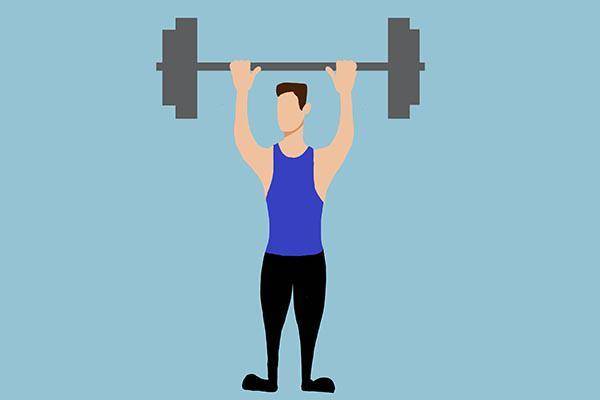Now it is not only women who pursue beauty, slimness, and a perfect figure, men are also starting to pay attention to their physique. Especially nowadays, once men get married, they tend to gain weight easily. Although this is called “happy fat,” having extra weight around the belly is not always aesthetically pleasing.
In the gym, many men are dedicated to working out, but not all of them are gaining weight. Some men are not overweight but are aiming to build muscles to appear stronger.
For men with a height of 175-185 cm, what is the appropriate weight range?
What is considered a standard weight? According to the World Health Organization’s recommended calculation method: for men, (height in cm-80)×70%=standard weight; for women, (height in cm-70)×60%=standard weight. The normal weight range fluctuates by around 10% from this calculation. Following this method, for men with a height of 175-185 cm, a weight between 66.5 kg to 73.5 kg is considered appropriate. As long as a person’s weight does not exceed this range by 10%, it is considered suitable. Anything beyond that is considered overweight or underweight.
Why do many men gain weight once they get married? A handsome young man before marriage suddenly turns into a greasy middle-aged uncle after getting married. Many female friends jokingly say this is due to marrying a fraud. Men usually pay more attention to their appearance before marriage, maintaining a healthy weight and physique. After all, this is the era of appearances; if you are average-looking and unfit, how will you find a girlfriend to marry? After marriage, men tend to lower their standards for themselves, no longer focusing on their appearance, leading to changes in their physique.
Being overweight not only affects one’s appearance but also harms their physical health. Excess weight accumulates not only as subcutaneous fat but also in the organs and blood vessels, making them susceptible to various cardiovascular diseases, especially hypertension. Current research data suggests that the incidence of hypertension in obese individuals is 1 to 2 times higher than in normal individuals. Moreover, the higher the weight, the higher the risk of hypertension.
Many overweight individuals have a penchant for eating sweets. When the sugars from sweets enter the body and remain undigested, they convert to fat, causing obesity. In some developed countries, overweight individuals often also suffer from diabetes.
Moreover, overweight individuals have higher cholesterol levels in their blood, making them prone to gallstones. Excessive fat accumulation in the liver can lead to fatty liver and cirrhosis.
Being overweight exposes the body to numerous diseases, but what about being a bit thinner?
When we watch TV, we see that celebrities have very slender figures, looking very attractive. However, in reality, they are slightly thinner than the average person. Being slightly thinner makes them look good on screen. Some female celebrities go to extreme lengths to diet in order to look better, but end up damaging their bodies.
Too thin individuals often experience suboptimal health conditions. Compared to normal individuals, thin people are generally weaker, have lower resistance, and are more susceptible to illnesses. Prolonged dieting leads to inadequate energy intake, causing symptoms like fatigue and weakness. Additionally, having less fat around the abdomen and weaker abdominal muscles can lead to conditions like gastric ptosis.
Therefore, one should not strive to be too light for the sake of beauty, nor neglect their weight, leading to overweight issues. To maintain good health, it is essential to keep weight within a balanced range.


